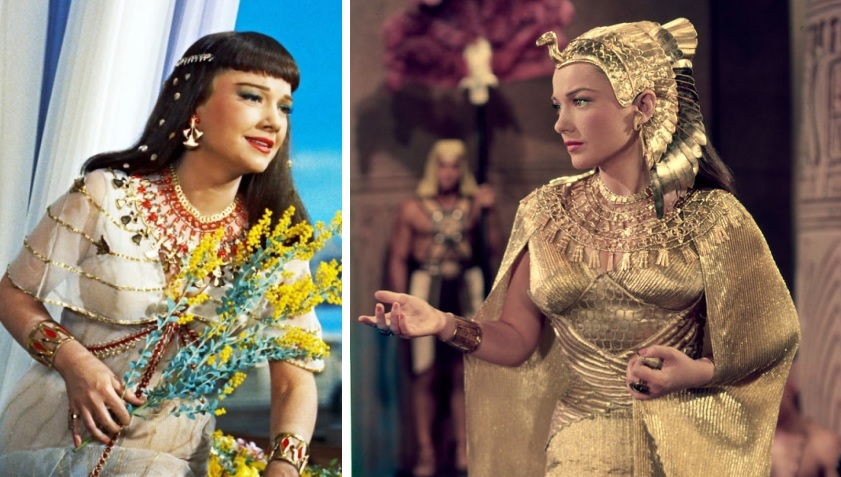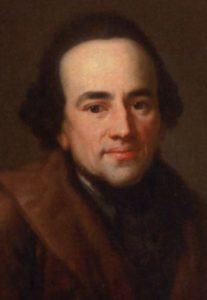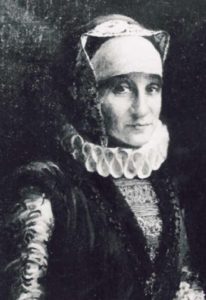Two Oscar Record Holders
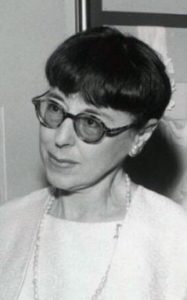 Edith Claire Posener (1897-1981) was born in California to Jewish parents of German heritage. She studied languages at UC Berkeley and Stanford and became a high school language teacher. To make a little more money, she offered to teach art as well, although she had no professional training in the subject. A year after marrying Charles Head, she got a job as a costume sketch artist for Paramount Pictures. Very quickly, she became one of Hollywood’s most popular costume designers. She was the go-to choice for top stars like Audrey Hepburn, Elizabeth Taylor, and Bette Davis. Nominated for a whopping 35 Academy Awards, Head won 8 times, giving her the record for most Oscars won by a woman to this day. All in all, Head worked for 43 years at Paramount Pictures and another 14 at Universal Pictures, designing costumes until her very last days. She also designed the women’s uniform for the US Coast Guard. Head made cameo appearances in a number of TV shows and films, and was the inspiration for the character of Edna Mode in Pixar’s The Incredibles. Among her other honours is a star on the Hollywood Walk of Fame, and a 2003 commemorative stamp from the US Postal Service. Edith Head passed away in the same year that another famous Jewish-German Oscar record holder did:
Edith Claire Posener (1897-1981) was born in California to Jewish parents of German heritage. She studied languages at UC Berkeley and Stanford and became a high school language teacher. To make a little more money, she offered to teach art as well, although she had no professional training in the subject. A year after marrying Charles Head, she got a job as a costume sketch artist for Paramount Pictures. Very quickly, she became one of Hollywood’s most popular costume designers. She was the go-to choice for top stars like Audrey Hepburn, Elizabeth Taylor, and Bette Davis. Nominated for a whopping 35 Academy Awards, Head won 8 times, giving her the record for most Oscars won by a woman to this day. All in all, Head worked for 43 years at Paramount Pictures and another 14 at Universal Pictures, designing costumes until her very last days. She also designed the women’s uniform for the US Coast Guard. Head made cameo appearances in a number of TV shows and films, and was the inspiration for the character of Edna Mode in Pixar’s The Incredibles. Among her other honours is a star on the Hollywood Walk of Fame, and a 2003 commemorative stamp from the US Postal Service. Edith Head passed away in the same year that another famous Jewish-German Oscar record holder did:
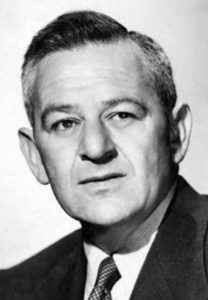 William Wyler (1902-1981) was born in France, where he grew up very poor, and often skipped school to sneak into movies. His mother eventually called up her wealthy cousin in America—Carl Laemmle, the founder of Universal Pictures—to ask for help. Laemmle brought young Wyler to New York, where he first served for a year with the National Guard. Wyler then moved to Hollywood and got his first job cleaning stages and moving sets. He then broke off on his own to become a director. Wyler worked round-the-clock, and by the early 1930s made a name for himself as a creative filmmaker. He churned out some of the greatest hits of the era, including Wuthering Heights and Mrs. Miniver, which won 6 Oscars, including the first Best Director for Wyler. During World War II, he focused on making anti-Nazi and pro-British films, but many of them were blocked by the US government, who wanted to maintain a neutral stance at first. Mrs. Miniver changed that, with both Roosevelt and Winston Churchill loving the film, the latter even declaring: “Mrs. Miniver is propaganda worth 100 battleships!” In 1942, Wyler enlisted in the US Army and served as an Air Force major. He continued to make films while literally risking his life flying over battlefields. He got injured, lost hearing in one ear, and returned to America at the end of the war a disabled veteran. He eventually went back to Hollywood and continued to make huge hits. The biggest was 1959’s Ben-Hur, which won a record-breaking 11 Oscars, with Wyler winning his third for Best Director. The film saved MGM from bankruptcy (making $90 million on a $15 million budget). It was also Wyler that brought Barbra Streisand to cinema when he cast her in the 1968 Funny Girl, for which she won a Best Actress Oscar—making her one of 14 people to win the award thanks to Wyler (another record). He retired in 1970, having made 67 films, 13 of which won Best Picture. He was known as “40-take Wyler” because he would retake scenes over and over again to get them perfectly right. He remains the most-nominated director in Oscar history, and was voted one of the top 50 “outstanding Americans”.
William Wyler (1902-1981) was born in France, where he grew up very poor, and often skipped school to sneak into movies. His mother eventually called up her wealthy cousin in America—Carl Laemmle, the founder of Universal Pictures—to ask for help. Laemmle brought young Wyler to New York, where he first served for a year with the National Guard. Wyler then moved to Hollywood and got his first job cleaning stages and moving sets. He then broke off on his own to become a director. Wyler worked round-the-clock, and by the early 1930s made a name for himself as a creative filmmaker. He churned out some of the greatest hits of the era, including Wuthering Heights and Mrs. Miniver, which won 6 Oscars, including the first Best Director for Wyler. During World War II, he focused on making anti-Nazi and pro-British films, but many of them were blocked by the US government, who wanted to maintain a neutral stance at first. Mrs. Miniver changed that, with both Roosevelt and Winston Churchill loving the film, the latter even declaring: “Mrs. Miniver is propaganda worth 100 battleships!” In 1942, Wyler enlisted in the US Army and served as an Air Force major. He continued to make films while literally risking his life flying over battlefields. He got injured, lost hearing in one ear, and returned to America at the end of the war a disabled veteran. He eventually went back to Hollywood and continued to make huge hits. The biggest was 1959’s Ben-Hur, which won a record-breaking 11 Oscars, with Wyler winning his third for Best Director. The film saved MGM from bankruptcy (making $90 million on a $15 million budget). It was also Wyler that brought Barbra Streisand to cinema when he cast her in the 1968 Funny Girl, for which she won a Best Actress Oscar—making her one of 14 people to win the award thanks to Wyler (another record). He retired in 1970, having made 67 films, 13 of which won Best Picture. He was known as “40-take Wyler” because he would retake scenes over and over again to get them perfectly right. He remains the most-nominated director in Oscar history, and was voted one of the top 50 “outstanding Americans”.
17 Facts You Should Know About the Jewish Calendar
Words of the Week
A word is worth one coin, silence is worth two.
– Talmud, Megillah 18a

